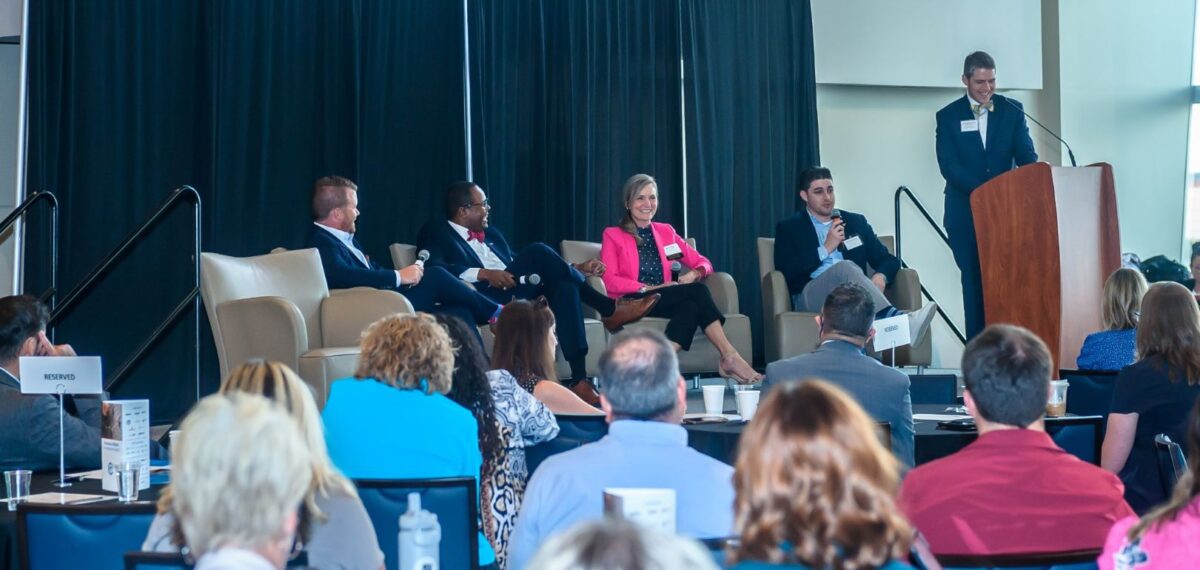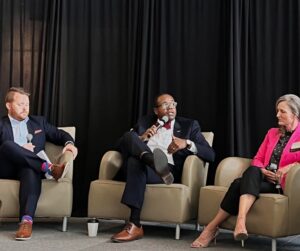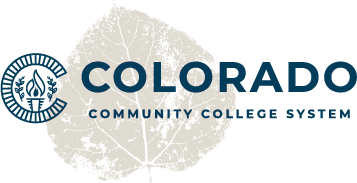CCCS News
CCA President Dr. Mordecai Brownlee Talks Innovation at Future of Work Event

To support the state’s strong economic recovery, colleges must embrace innovation to stay relevant.
That was the main message from Community College of Aurora (CCA) president Dr. Mordecai Brownlee, who represented CCCS at the Future of Work: Talent Pipelines Reimagined summit. More than a dozen K-12, higher education, and industry leaders discussed ways to keep Colorado competitive in the wake of the COVID-19 pandemic.
“It comes down to embracing what the disruption means,” Dr. Brownlee said. “There are so many pathways for [students] to get to their desired outcomes from a career standpoint. In many cases, higher education is having to ask for the first time, ‘How do we continue our relevance in this space?’’
That question is gaining more urgency as Colorado’s economy demands a highly trained workforce. More than 90% of top jobs—those that pay a family-sustaining wage—require a certificate or degree beyond a high school diploma, according to the Colorado Workforce Development Council’s Talent Pipeline Report. Today, only about 60% of adults in the state have a higher education credential with stark discrepancies between white Coloradans and Coloradans of color.
To narrow these gaps, higher education leaders need to take a hard look at what’s getting in prospective students’ way, Dr. Brownlee said.
“Are the programs that we’re offering even creating pathways to our social and economic mobility? What are the barriers that are present that we haven’t considered to be barriers?” he asked. “Due to the lack of speed in our response, industry is beginning to move around higher education and grow its own workforce.”

Dr. Mordecai Brownlee (center), president of Community College of Aurora, speaks on a panel with industry leaders.
To build those pathways, colleges should deepen partnerships with business, said Sam Bailey, manager of economic development policy with Amazon. The company’s Career Choice program partners with local education institutions, including CCA, to cover tuition and fees for training programs. So far, 80,000 employees have taken advantage of the program, he said.
“[Career Choice] allows someone not just to work in their community, but to be educated in their community,” Bailey said. “That’s really where that blur and blend has to happen. Without it, you’re just an employee at a business.”
Colleges must also adapt to students’ changing needs, Dr. Mordecai said. With the rise of digital tools and communication, students expect seamless service. Something as simple as filling out a paper application can turn people away, he said.
“If I’m a working parent, and the only time I can take my class is at 10 p.m., and I need tutoring, who’s available? There’s a level of expectancy for supports and transaction that have been brought through the consumer market,” he said. When modernizing processes at the institutions, “we have to be very careful that [their experience] is transformational, not transactional.”
Other panelists said their companies are expanding work-based learning opportunities, such as on-the-job training or apprenticeships, to help employees expand their skillsets. Mentoring and leadership programs can also help prepare early-career employees for advanced roles, said Nicholas Dantonio, who specializes in corporate workforce development at Lockheed Martin.
If colleges can embrace some of these emerging models, more prospective students will consider reskilling or upskilling through their institutions, Dr. Brownlee said
“We must create career pathways for this generation that’s coming up,” he said.


